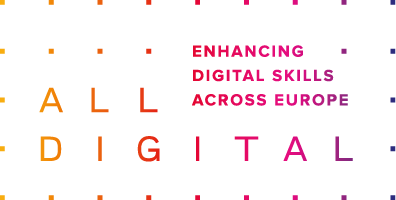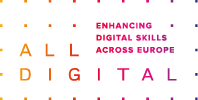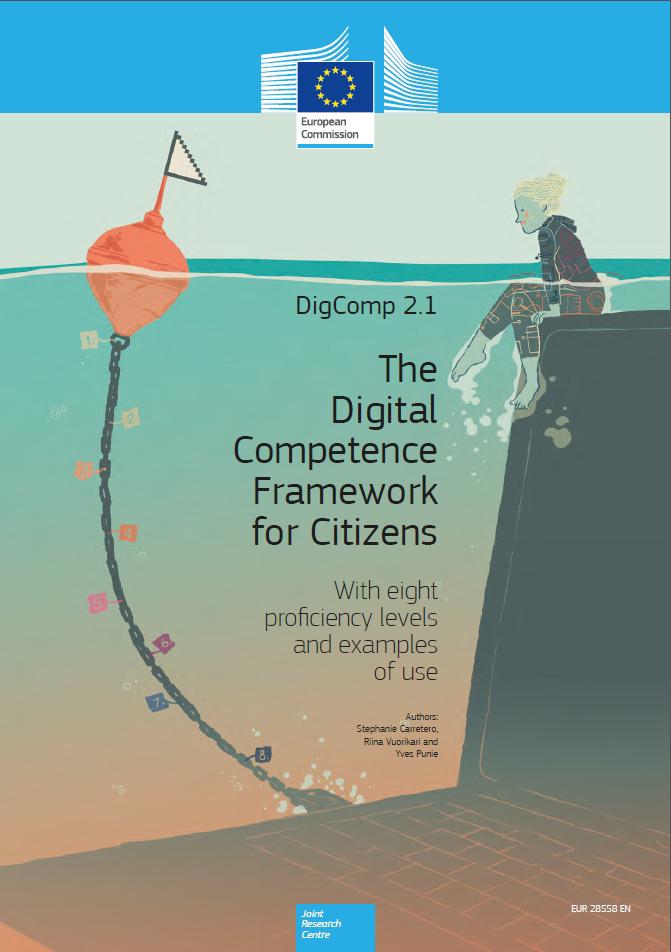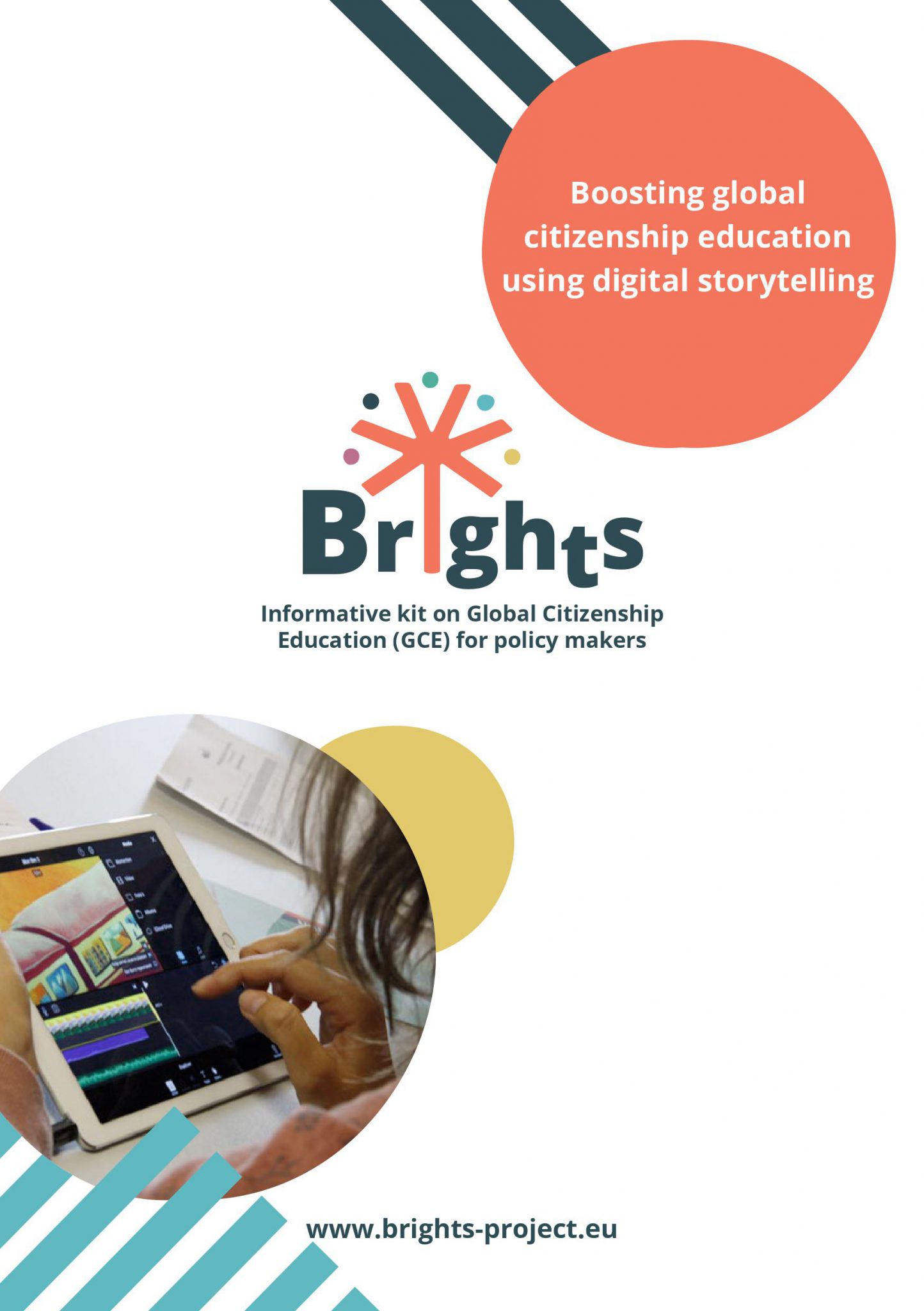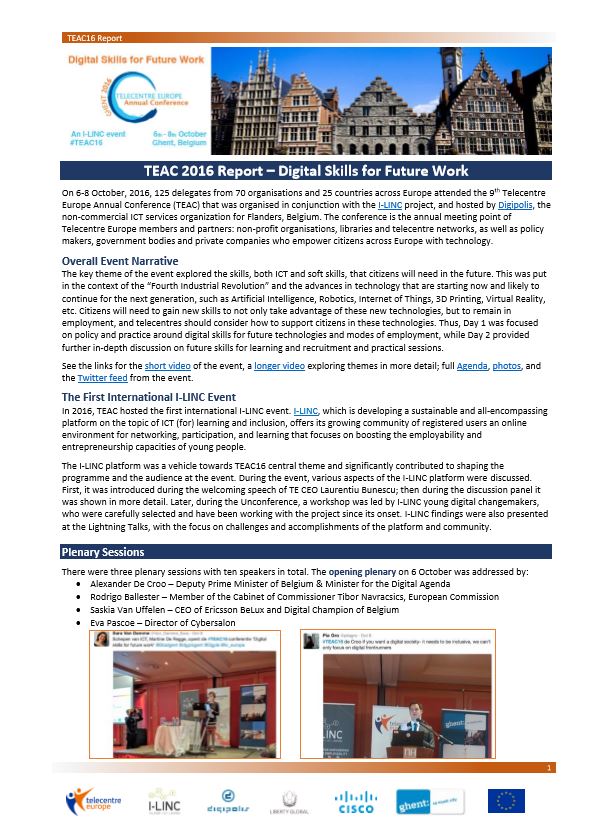03 Aug Programa Escolhas in Portugal: Telecentre Europe Member Profile
03 Aug, 2015
 Programa Escolhas (the Choices Programme) is a national programme of the Portuguese government for social inclusion under the Ministry of the Presidency of the Council of Ministers, and is part of the High Commission for Migration. The Programme was created to promote the social inclusion of children and youths of the most vulnerable communities, particularly the descendants of immigrants and ethnic minorities. Since its beginning the Programme has become increasingly recognized for the contribution it makes to the social inclusion of young people, namely in the fight against early school leaving and youth delinquency.
Programa Escolhas (the Choices Programme) is a national programme of the Portuguese government for social inclusion under the Ministry of the Presidency of the Council of Ministers, and is part of the High Commission for Migration. The Programme was created to promote the social inclusion of children and youths of the most vulnerable communities, particularly the descendants of immigrants and ethnic minorities. Since its beginning the Programme has become increasingly recognized for the contribution it makes to the social inclusion of young people, namely in the fight against early school leaving and youth delinquency.
The Choices Programme was created in January 2001 and is currently in its 5th intervention phase, which will run until December 31, 2015. The programme is currently financing 110 social inclusion projects in vulnerable communities throughout the country. The projects are defined by local consortia of partners (schools, NGOs, municipalities, etc.) and designed in five main categories: 1) School inclusion and non-formal education; 2) Vocational training and employability; 3) Community and civic participation; 4) Digital inclusion; and 5) Entrepreneurship and empowerment.

The digital inclusion centre from the project “Espaço Jovem da Quinta do Lavrado – E5G”
Alongside the 110 projects, there is the opportunity to fund a further 30 projects (15 in 2014 and 15 in 2015). These are annual experimental projects based on creative and sustainable responses, with a clear focus on employability, job placement and business development. They are particularly designed for young people living in the most vulnerable areas.
The priority target population is particularly those with a higher incidence rate of exclusion, therefore the project should have a higher focus and a more regular monitoring process. Young people aged between 6 and 24 years, coming from the most vulnerable socio-economic contexts, including immigrants descendants and individuals who belong to Roma communities, that are in one or more of the following situations: with school failure; truancy; early school leavers; NEET (Not in Education, Employment, or Training); with deviant behaviours; subject to guardianship measures; or subject to the promotion and protection measures.
What the Digital Inclusion Centres look like?
In its fifth phase (2013-2015) the Programme is financing and managing a total of 107 Digital Inclusion Centres throughout the country. Structured in five main axis, the fourth action line, is specifically aimed at promoting digital inclusion, focusing on the accessibility, development and certification of ICT skills.

Table 1 – Geographic Distribution of the Digital Inclusion Centres
Under this axis, projects were able to apply and implement Digital Inclusion Centres, setting up free of charge resources, bringing them to territories and persons that wouldn’t be able to benefit from them. In general, the activities within the digital inclusion centres are: ICT certified training courses, promotion of ICT skills and competences, ICT exploration through informal activities, school homework, job readiness programme, information search and other leisure activities.
All the Digital Inclusion Centres are equipped with the following resources: 6 computers; 1 multifunction printer; 1 video camera; 1 photographic camera, broadband internet access and they benefit from having 1 trainer/facilitator responsible for the management and provision of ICT skills and training development activities.
Most of the Digital Inclusion Centres are implemented in fixed locations, while some are developing their activities based on itinerancy, taking advantage from mobile units with the purpose to reach socially but also geographically excluded individuals, reducing the existent gaps.

Table 2 – Evolution of the Digital Inclusion Centres; 1 – Data collected from 01-01-2013 until 30-06-2015 from the 110 financed projects
Programme’s resources at hand for the centres
In order to better support the work done locally by the projects, the Programme’s coordination has established several protocols based on the Corporate Social Responsibility. In the educational field, the protocol with Porto Editora (Portuguese publishing company), provides free access to an interesting eLearning platform (www.escolavirtual.pt), in the form of interactive classes, named “Virtual School”, contributing positively to the overall rate of scholar success achieved in the last year (74%).
Within the ICT training, we promote the utilization of Microsoft Digital Literacy curriculum, and the diploma of basic skills in information technology (DCB), promoted by the Portuguese Foundation for Science and Technology. The DCB is a diploma instituted nationally in order to recognize the practical skills for basic use of a computer, Internet access and email. Between January 2013 and June 2015 within the Digital Inclusion Centres activities it was issued a total of 8.434 diplomas of basic skills in information technology.
In the scope of CISCO Networking Academy (NetAcad) we are able to use the Get Connected and the IT Essentials among other resources, providing an introduction to computer hardware and software, fostering the development of ICT entry-level competencies.
Social and digital inclusion initiatives: from games to TV channels
The pilot project “Funda Kit” (Tagmat) was implemented and explored in different Digital Inclusion Centres. The “Funda Kit” allows children and youth to construct their own interactive games, through a basic computer programming, which uses radio frequency technology.
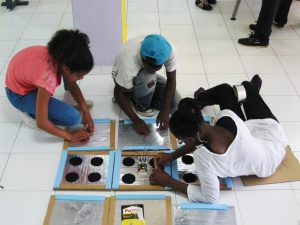
Creation of interactive games, in the Project “Orienta.Te Rio de Mouro – E5G”
The “RadioActive 101” European project utilizes the radio to give voice to children and young people from different projects located throughout the country (http://pt.radioactive101.eu/). This initiative intends to use the radio as a non-conventional learning methodology where social inclusion and employability skills are developed. The participants are responsible for editing and preparing the radio broadcasting, benefiting from the collaboration of professionals and accessing different resources and equipment such as portable recorders, microphones, computers, photographic/video equipment and mixing desk.
“Claquete E5G TV” is the name of the interactive TV channel created by one the programme’s financed project in Lisbon Region. Based on the work done with children and young people, this TV shows covers short films, documentaries, video clips, stories and other multimedia product.
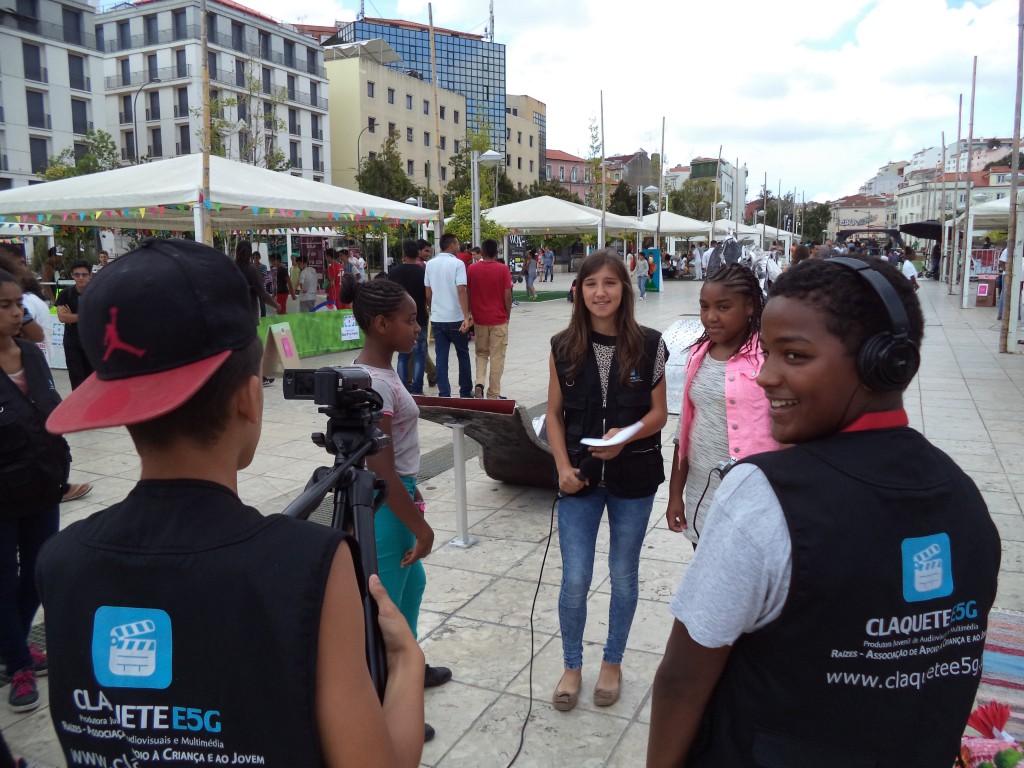
Media coverage of an event, secured by “Claquete E5G TV” young participants
Another initiative is named “Trading Cards from the Digital Inclusion Centre”, developed in Évora, Alentejo, located in the south of the country. The “Trading Cards” were conceived to be used as an adaptable resource, where each user effectively engaged in Digital Literacy initiatives will be represented in a “Trading Card”. The commitment to the training is the exchange for the figuration in the collection of stickers and finalization ensures the acquisition of further stickers to complete the collection.
Recognized by the European Commission
The experience of Choices Programme providing access to training resources, certification on basic and advance ICT competences and skills development, in order to reduce the digital divide within socially vulnerable contexts, was recognized and highlighted by the European Commission as an example of good practice in the combat of early school dropout and failure, being included in the Commission’s “Handbook for Integration”.

Digital inclusion training activity at the project “InSERir com Escolhas – E5G”
In 2014 Choices Programme was the sole Portuguese project (and one of the few Europeans) named in the list of finalists of the WSIS Project Prizes 2015, due to its contribution to the creation of a society where everyone can access and develop the necessary skills to engage and enjoy the benefits of the Information Society.
The longevity of this social intervention program, has allowed the gradual development of a reflective capacity, which has enabled the introduction of improvements and adjustments, trying to bring more resources to a larger number of info-excluded participants, with the goal of reducing existent competitive disadvantages in the covered territories.
CONTACTS
Paulo Jorge Vieira | National Manager for Digital Inclusion
E-mail: paulov.consultores@programaescolhas.pt
Tel: (+ 351) 218 103 060 * Fax: (+ 351) 218 103 079
Rua dos Anjos, 66, 3º andar. 1150-039 Lisboa, Portugal
